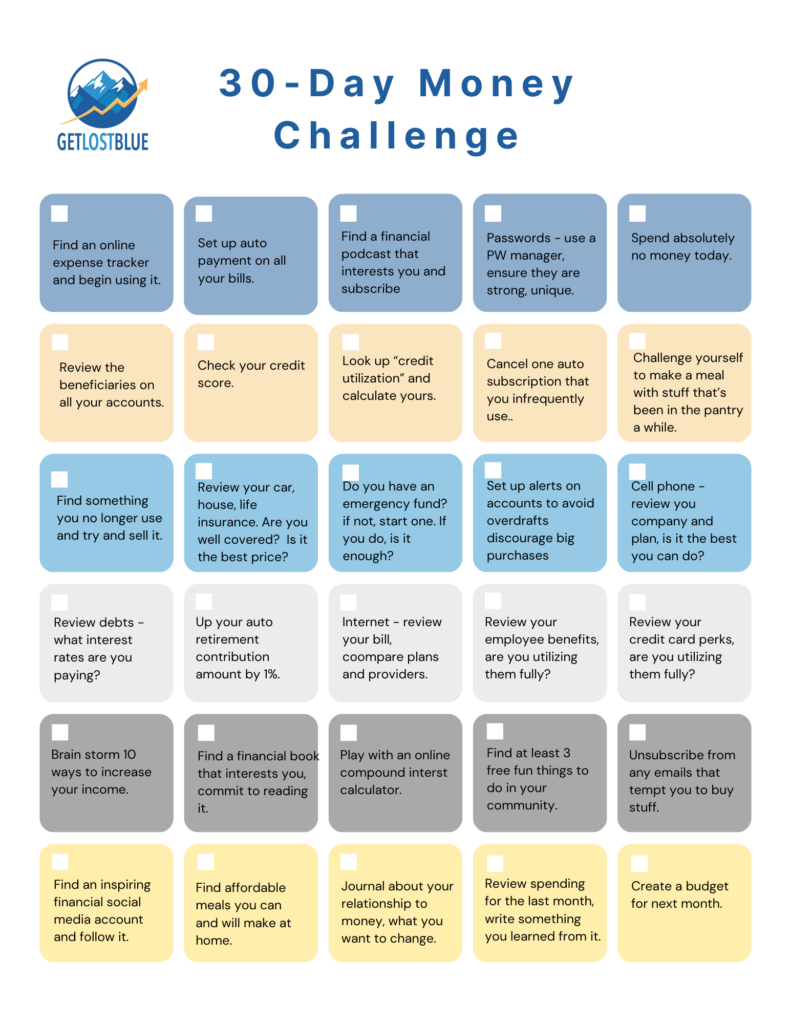“Sing like no one is listening, love like you’ve never been hurt, dance like no one is watching and live like it is heaven on earth” – Mark Twain.
Samuel Clemens was a master wordsmith. But I humbly submit one more thing to his list: Spend like no one is watching!
Let’s play a game: imagine you live on a deserted island (but with Wi-Fi and stores). No neighbors to impress, no colleagues to judge your outfit, no one on Instagram to like your vacation photos.
Now, take a deep breath and ask yourself: What would you spend money on if there was no around to impress or judge?
This isn’t just a quirky thought experiment; it’s a behavioral finance deep dive. Societal norms and self-consciousness shape our spending choices every day and can have a massive impact on our financial health and overall happiness.
So, let’s talk about how spending like no one is watching could change your life. And if this inspires a little singing or dancing, I’m all for that too!
Financial Peer Pressure
We’re wired to compare ourselves to others. Its a behavioral trait passed down through the milennia. We can let social comparison trigger us to spend on status symbols, like luxury cars, designer clothes, or homes bigger than your actual needs.
We may think we’re signaling our success. Or, we may think we have to, in order to keep up with the Joneses.
But the Joneses are likely in debt. Look at the data, 50% of Americans live pay-check to pay-check. Even high earners aren’t guaranteed to be making ends meets. That fancy house? That’s a mortgage that takes up too much of their budget. The flashy car? Leased, not owned.
What you see from the outside has no relevance to actual financial success or happiness.
And the reality is, people think about themselves way more than they think about you. When someone sees you in that “dream” car, they’re not marveling at your success. They’re imagining how they’d feel driving it.
How do you feel driving the car? The dopamine rush from buying it has probably long worn off. Probably about the time the first luxury repair bill came in.
And once everyone in the neighborhood has the new hot toy, it’s no longer hot. The goal posts are always moving.
You want to continue playing that game? Or win your own game?

You Are Not Your Things
But you’re a Range Rover person now…there’s no going back, right? (Always Sunny in Philadelphia fans, picture Dennis Reynolds.)
It’s easy to fall into the trap of thinking, I am what I own.
But if your self-worth is tied to what you own, you’re building your identity on a fragile foundation. Trends fade, possessions wear out, and the dopamine hit from that shiny new thing is fleeting at best.
Think about who you are if all of your things went away. Think about the traits and values that make you uniquely you: Your kindness, sense of humor, creativity, or resilience? These are the qualities that give you real, lasting identity.
Take stock of your achievements that don’t involve money. Spend time with people who see and celebrate the real you. Over time, you won’t need possessions to tell the story of who you are.
Worse Than Money…Your Time!
If you strip away societal judgment, would you still spend every Saturday at the beauty salon? Would you keep up the routine of hair dye, manicures and Botox? (Not that this pressure is exclusive to women, but society sure turns it up to 11 for them.)
How long do you spend shopping for the perfect outfit or browsing social media to see what’s on trend. Are you buying clothes that make you feel confident and comfortable, or are you hobbling around in $600 stilettos because its what’s expected of you?
This isn’t a generic pitch about body positivity or hating on self-care. It’s about asking yourself why you’re spending not only your money, but your more precious time on this stuff?
Is there any more satisfying ways you’d spend your time, if you gave yourself permission to have sub-par nail beds?
The Psychological Weight of Stuff
Researchers haven’t figured out the formula for happiness, but they do agree on one thing, hoarding material possessions won’t get you there.
In fact, it can be quite the opposite. Things and clutter often add stress and anxiety to our lives.
Once you buy something, it’s hard to go back. That’s the sunk cost cognitive bias at work.
Take the $5,000 four-wheeler you never use. Now it’s sitting in your garage with flat tires, leaking oil. But you spent so much on it, you can’t let it go.
Or the dream house with the pool. Sounds amazing, until you realize managing the maid, yard service, and pool cleaner is basically a part-time job. And you’re working overtime to afford it, so you’re hardly ever home to enjoy it.
Be careful. The price tag of something does not reflect the true cost of ownership. And everything you bring into your life comes with its own baggage.
Flip Side
Let’s not forget the flip side of societal pressure. It doesn’t just make us buy things we don’t need. It can stop us from spending on what truly matters to us.
Maybe you’ve always dreamed of restoring a ’70s muscle car, but your social circle is all about EVs. Or perhaps you’ve got the “perfect” career on paper, but deep down, you’re miserable and itching to start something new.
The bottom line? What seems foolish to others might align perfectly with your values. Judgment can keep us from taking reasonable risk or being true to ourselves.
Freedom Through Intentional Spending

Back to our experiment. What would you spend money, time, and energy on if you weren’t trying to impress anyone? If judgment didn’t exist? Take a moment and picture your ideal life.
Imagine your dream home: What would it look like if it didn’t have to impress anyone? Maybe it’s smaller than your friends’ house, but it’s filled with natural light, and lots of messy pets. Or maybe it’s not a house at all! It’s a camper van parked by a different trailhead every week.
Now, think about the “things” you’d choose to keep or add. Are there items you’ve been dreaming of but dismissed because they didn’t fit the image of what you think you should own? Conversely, what about the things you regret? Think about carefully curating your collection of things to perfectly fit your likes and needs.
Finally, shift your focus to how you’d spend your time. Would you skip the expected social function and take that pottery class your mom thought would be a waste of time? Spend more time outdoors? Invest in relationships that matter to you?
Envisioning these details can help you uncover what truly brings you joy and fulfillment, and serve as a guide for where to direct your energy and your money.
Interrogate Your Spending
The antidote to this societal spending trap is practicing intentionality. Ask yourself these questions:
- Why am I buying this? Am I feeling self-conscious? Trying to impress someone? Filling an emotional void?
- What will this mean for my life? How will this item impact my space, my time, and my energy?
- Am I considering others’ opinions more than my own? Is this purchase about what I think, or what I think they’ll think?
- Does this align with my values? Will it bring genuine joy or fulfill a real need?
Intentional spending doesn’t mean giving up nice things. It means choosing things that enhance your life, not hollowly signal status.
Live Like Heaven on Earth
It’s only natural to look around and notice differences. Scrolling through someone else’s picture-perfect life can make you second-guess your own choices. But remember, those snapshots don’t tell the whole story.
Instead of letting comparison make you feel inadequate, use it as a tool to uncover what truly matters to you. When you find yourself envying someone’s travel adventures, new hobby, or minimalist lifestyle, pause and ask: What about this appeals to me? Is it something I genuinely value, or just something I think I should value because others seem to?
This clarity builds confidence. You stop spending to impress others and start living to fulfill your unique vision. Mark Twain might not have coined it, but the sentiment fits: comparison can’t steal your joy if you’re too busy building the life you actually want.
So, spend like no one is watching. After all, the only person who truly needs to love the way you live is you!
Live a Life You Love
Tired of feeling stuck? Let’s create your escape plan. Schedule your free session today.
Or, get my easy-to-follow Money Challenge – transform your finances in Just 30 Days!

- Simple
- Actionable
- Empowering


Leave a Reply